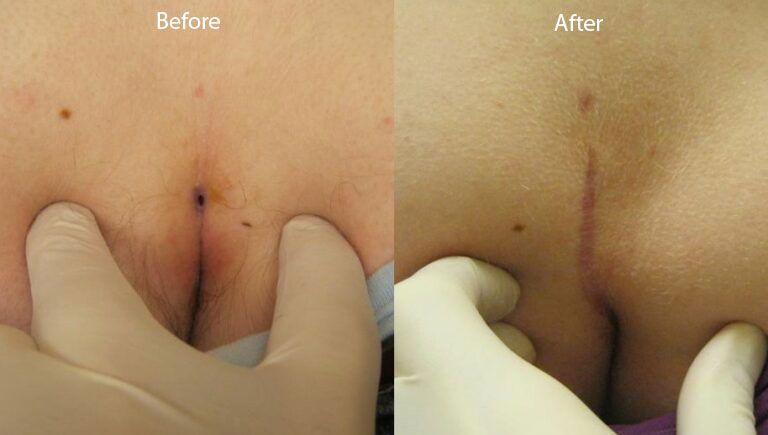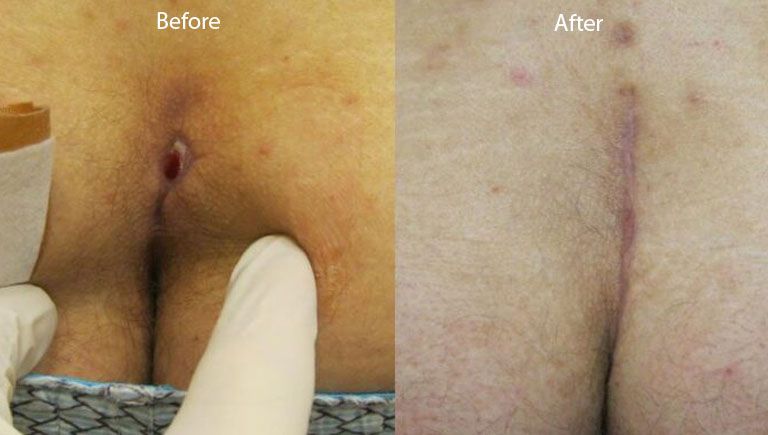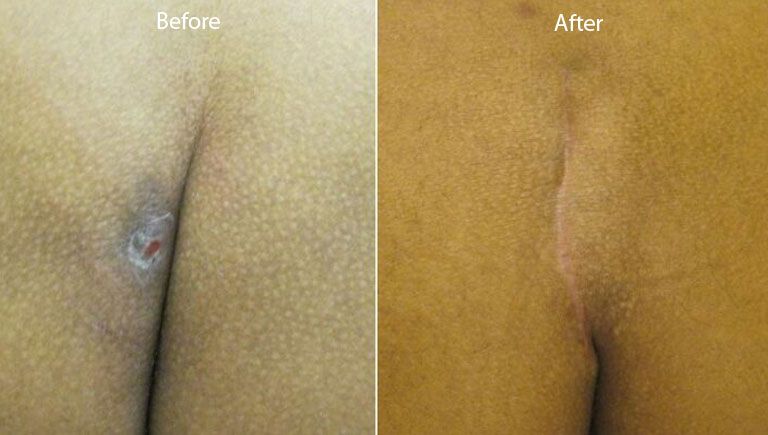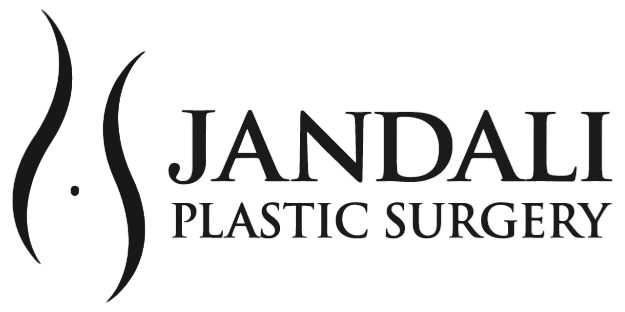Surgical Treatment of Pilonidal Disease by Dr. Jandali in Connecticut
Pilonidal disease, a condition affecting the skin near the tailbone, can cause significant discomfort and recurring infections if left untreated. Dr. Shareef Jandali, a Connecticut-based plastic and reconstructive surgeon, specializes in treating pilonidal disease using the most advanced techniques. By minimizing scarring and utilizing innovative methods such as a modified version of the Cleft Lift Procedure and the Karydakis flap, Dr. Jandali ensures effective and cosmetically favorable outcomes for his patients.
What is Pilonidal Disease? Understanding the Etiology and Symptoms
Pilonidal disease is characterized by the formation of a cyst or abscess near the tailbone, typically at the top of the crease of the buttocks. The condition often begins with an ingrown hair that becomes trapped beneath the skin. As the body reacts to the trapped hair as a foreign object, it creates an inflammatory response, which can lead to the development of cysts, abscesses, or sinus tracts.
Causes of Pilonidal Disease
- Hair: Pilonidal disease is often associated with the presence of hair in the crease between the buttocks. Loose hairs can penetrate the skin, causing irritation and infection.
Sitting for Prolonged - Periods: People with sedentary lifestyles or professions that require long periods of sitting are more prone to developing pilonidal disease.
- Genetic Predisposition: Some individuals may have a genetic predisposition, making them more susceptible to developing pilonidal disease.
- Gender and Age: The condition more commonly affects men, particularly between the ages of 15 and 35.
Symptoms of Pilonidal Disease
Patients with pilonidal disease may experience a variety of symptoms, depending on the severity of the condition. These can range from mild irritation to severe infection.
- Pain and Swelling: Pain at the base of the spine, especially when sitting, is a common symptom. The affected area may also swell and become tender to the touch.
- Drainage: A pilonidal cyst may become infected and drain pus or blood, leading to an unpleasant odor.
- Recurring Infections: If left untreated, pilonidal disease often recurs, leading to chronic infections and the formation of multiple sinus tracts.
- Fever and Malaise: In cases of severe infection, patients may develop a fever and generally feel unwell.
Pilonidal Disease Surgery in Connecticut: Advanced Techniques to Minimize Scarring
For patients in Connecticut suffering from pilonidal disease, Dr. Jandali offers surgical solutions that not only resolve the condition but also focus on minimizing scarring through advanced plastic surgical techniques. Traditional treatments often result in large, noticeable scars, especially in an area that’s prone to tension and movement. Dr. Jandali’s approach combines effective treatment with cosmetic precision, ensuring optimal healing and a more aesthetically pleasing result.
Modified Cleft Lift Procedure by Dr. Jandali in Connecticut
The Cleft Lift Procedure, also known as the Bascom procedure, is a surgical technique designed to treat pilonidal disease by addressing both the infection and the underlying causes of recurrence. Dr. Jandali performs a modified version of this procedure, enhancing its effectiveness and reducing visible scarring.
How the Modified Cleft Lift Procedure Works:
The cleft lift procedure involves excising the infected tissue while preserving as much healthy skin as possible. During the surgery, the cleft between the buttocks is reshaped to prevent future hair and debris from becoming trapped, which is a common cause of recurrence.
Key Features of Dr. Jandali’s Modified Cleft Lift Procedure:
– Minimally Invasive: Dr. Jandali’s approach focuses on minimizing tissue removal, which helps reduce postoperative discomfort and speeds up recovery.
– Cosmetic Results: By utilizing advanced plastic surgical techniques, Dr. Jandali ensures that scarring is kept to a minimum, placing incisions in less visible locations when possible.
– High Success Rate: The modified cleft lift procedure has a high success rate in preventing recurrence, making it an excellent choice for patients who have experienced multiple pilonidal cysts.
Patients needing pilonidal surgery in Bridgeport, Stamford, New Haven, Hartford, Waterbury, Norwalk, Danbury, and other cities across Connecticut can benefit from this procedure, as it allows for rapid recovery with minimal downtime.
Karydakis Flap Procedure for Pilonidal Disease by Dr. Jandali in Connecticut
The Karydakis flap is another surgical option offered by Dr. Jandali for patients suffering from pilonidal disease. This technique is ideal for patients who require more extensive treatment or have a history of recurrent infections.
What is the Karydakis Flap Procedure?
The Karydakis flap procedure involves removing the pilonidal sinus and closing the wound using a flap of skin and tissue from the nearby area. By shifting the cleft away from the midline, this procedure reduces the risk of recurrence while promoting optimal healing.
Advantages of the Karydakis Flap Procedure:
– Reduced Tension on the Incision: The Karydakis flap technique minimizes tension on the surgical incision, which helps prevent wound breakdown and improves healing.
– Minimal Scarring: Dr. Jandali’s use of plastic surgery techniques ensures that scarring is minimized, providing patients with a smoother and more discreet cosmetic outcome.
– Lower Recurrence Rate: The Karydakis flap procedure has a low recurrence rate, making it an effective option for patients with chronic or recurrent pilonidal disease.
Whether you live in New Haven, Stamford, Bridgeport, Norwalk, Waterbury, New Britain, Bristol, or surrounding areas, Dr. Jandali offers advanced surgical care for pilonidal disease to help you regain your quality of life.
Why Choose Dr. Jandali for Pilonidal Disease Surgery in Connecticut?
As a board-certified plastic surgeon, Dr. Jandali combines his expertise in reconstructive surgery with an understanding of the importance of aesthetics. His approach to treating pilonidal disease focuses on both functional outcomes and cosmetic concerns, making him the top choice for patients seeking effective and minimally invasive solutions.
If you are seeking treatment for pilonidal disease in Connecticut, Dr. Jandali offers advanced options for patients throughout Bridgeport, Stamford, New Haven, Hartford, Waterbury, Norwalk, Danbury, New Britain, West Hartford, and beyond. With his expertise in the Cleft Lift and Karydakis flap procedures, Dr. Jandali can help you achieve long-term relief with minimal scarring.
Contact Us
Call 203-374-0310 to set up a consultation with our providers.



